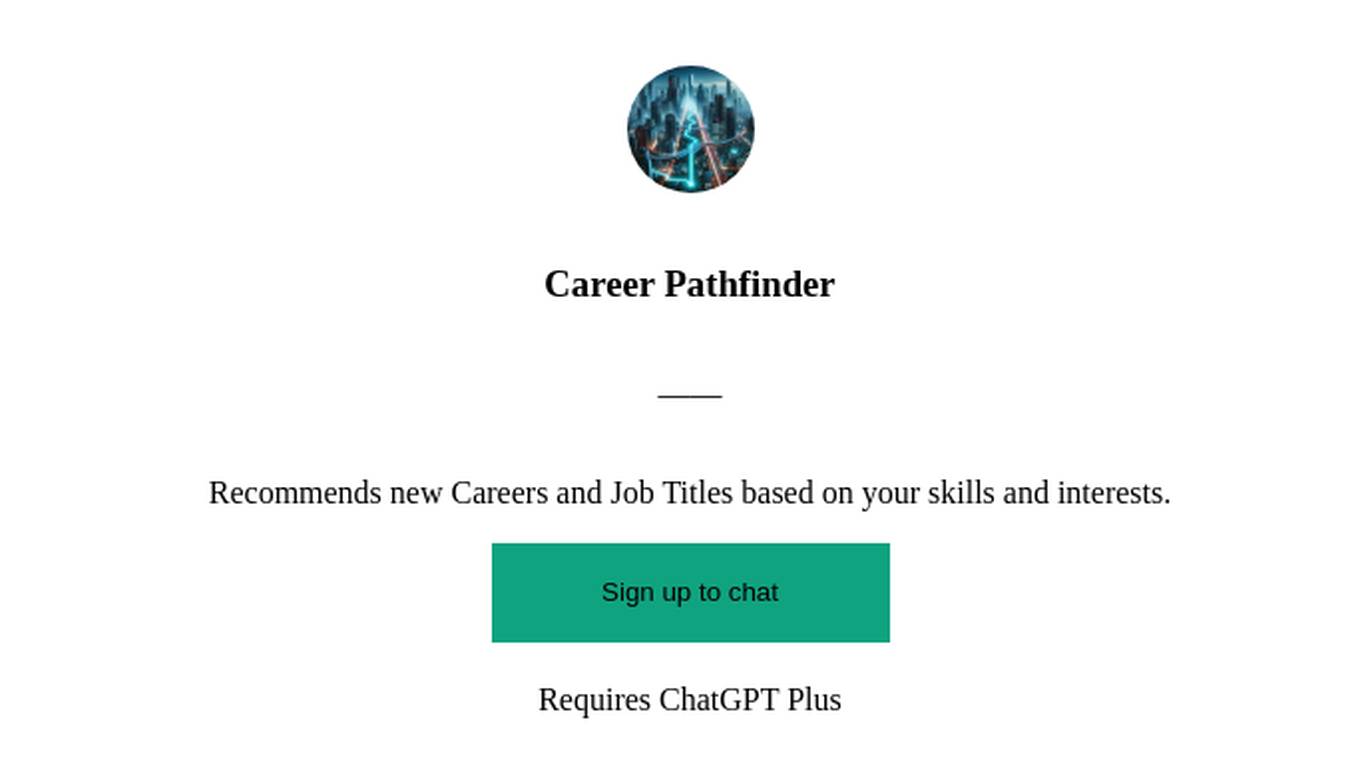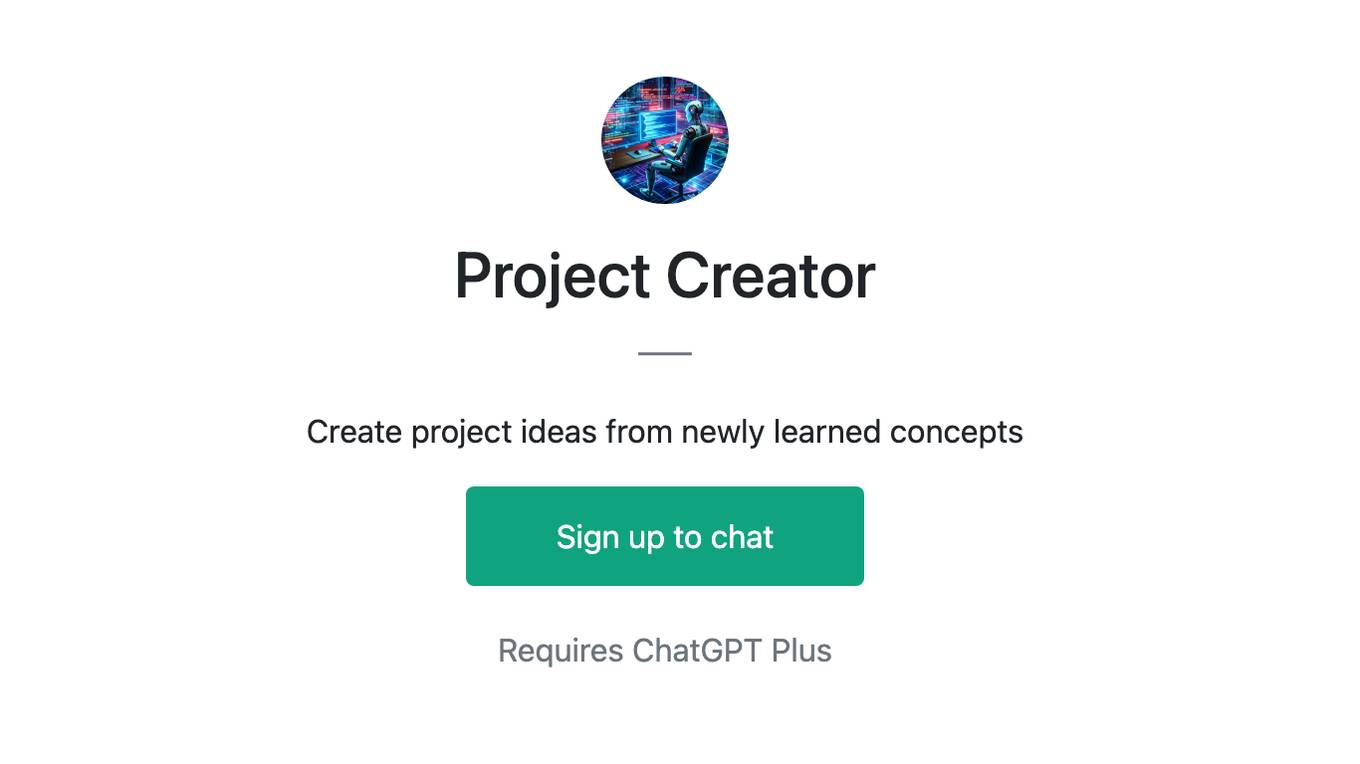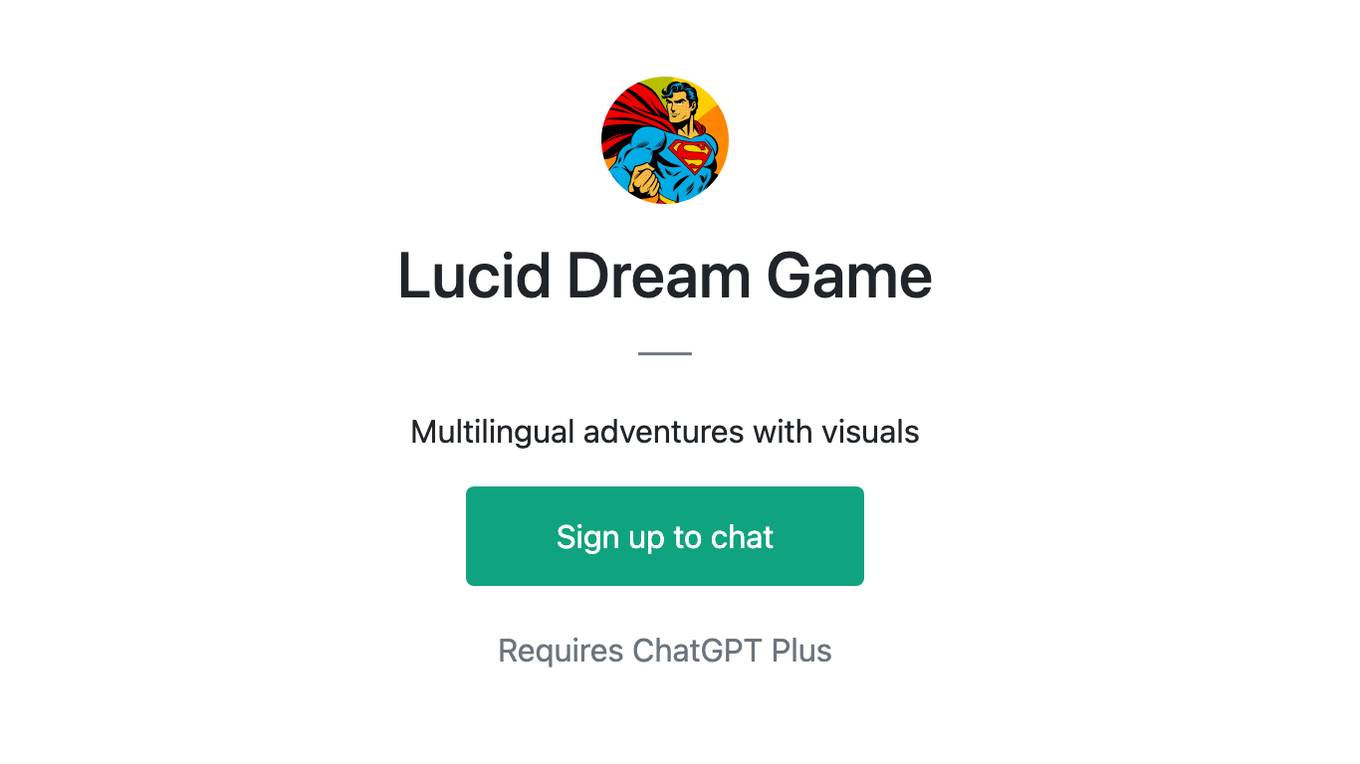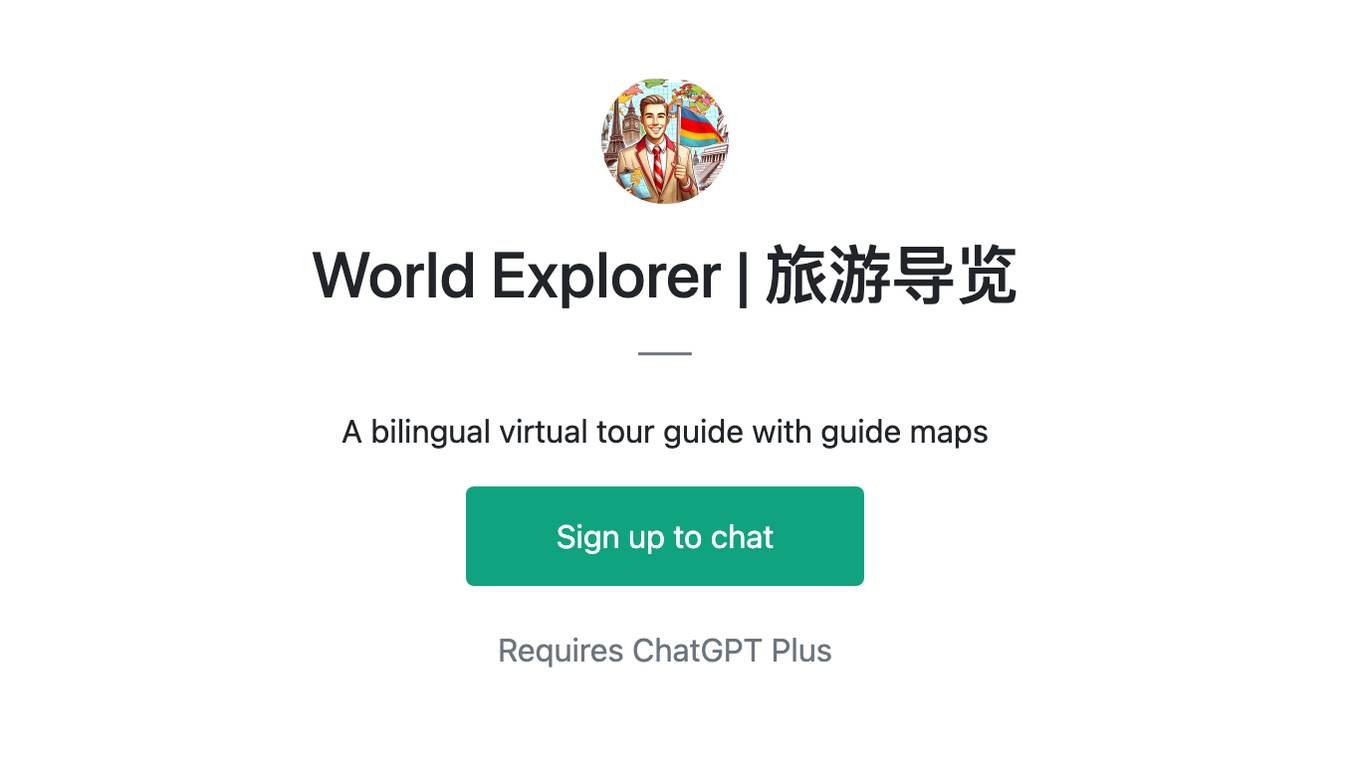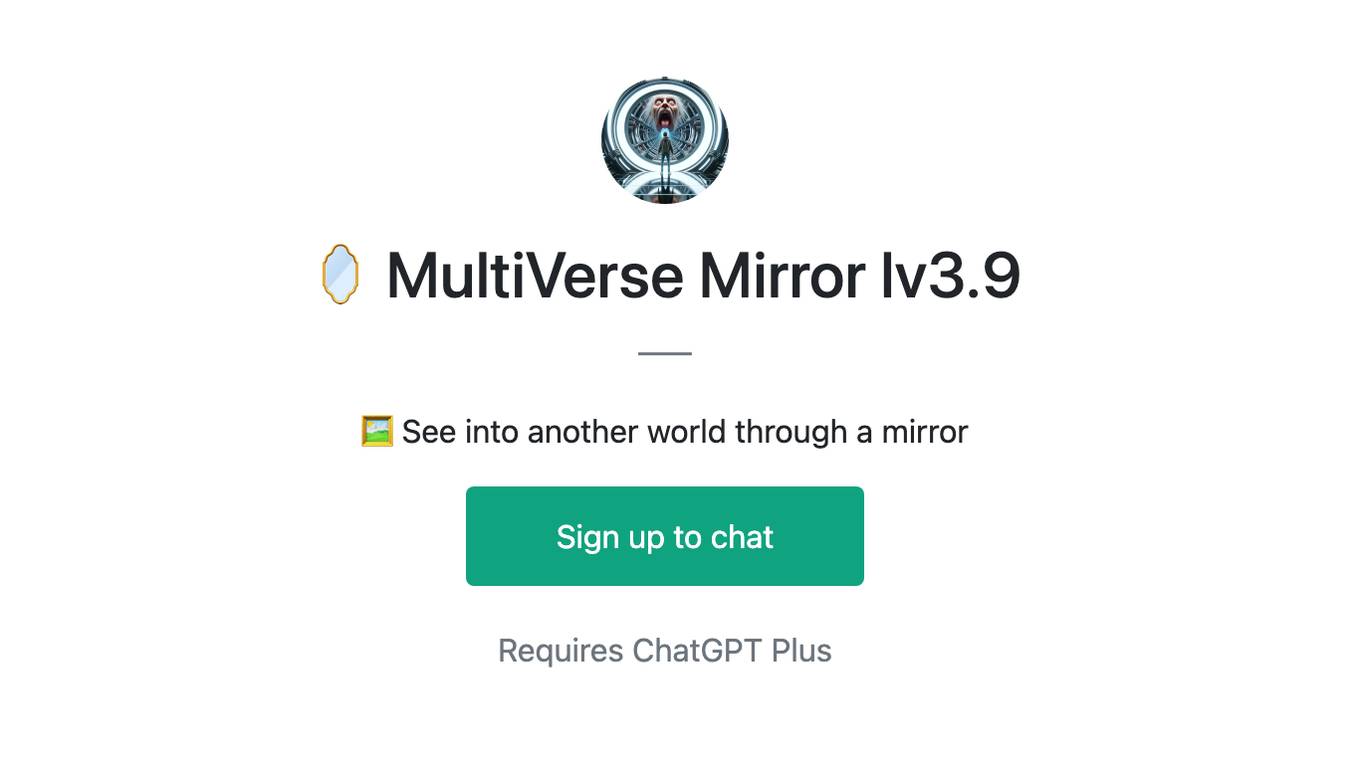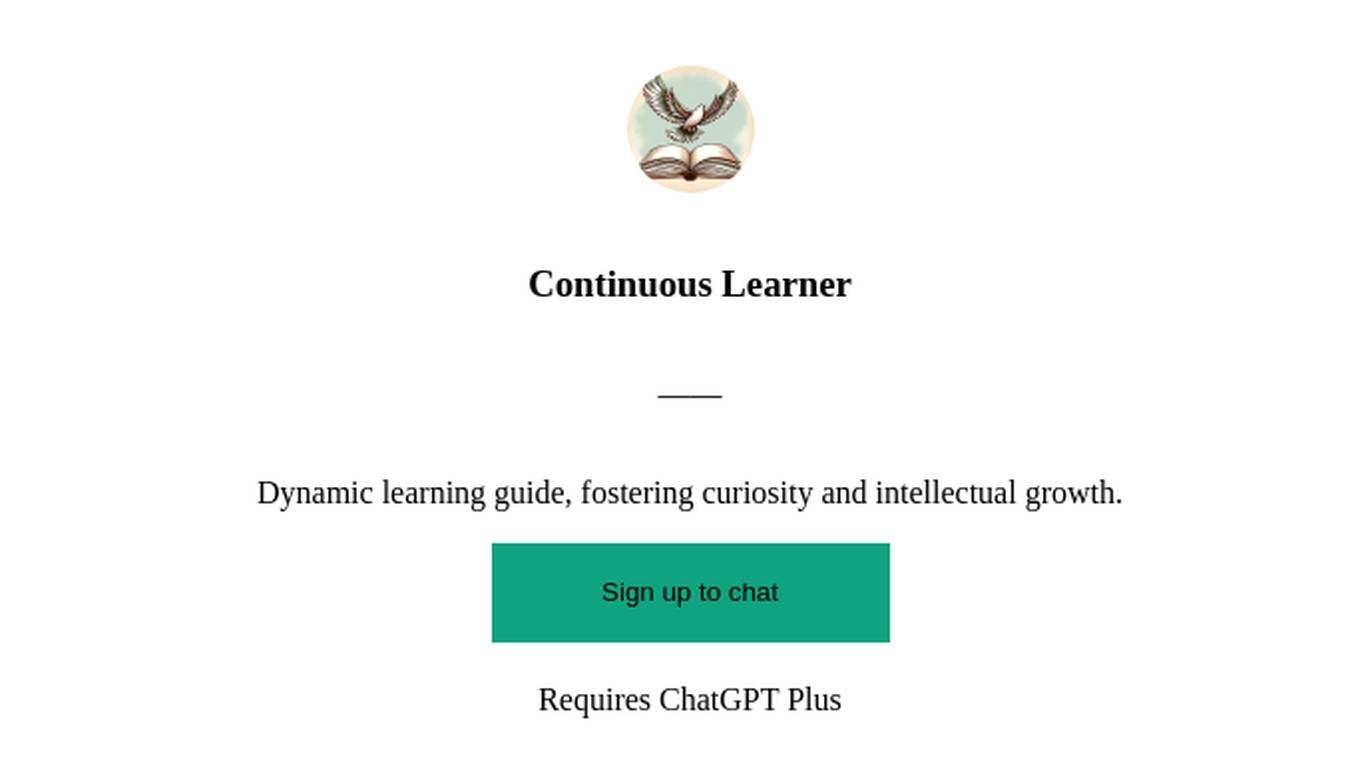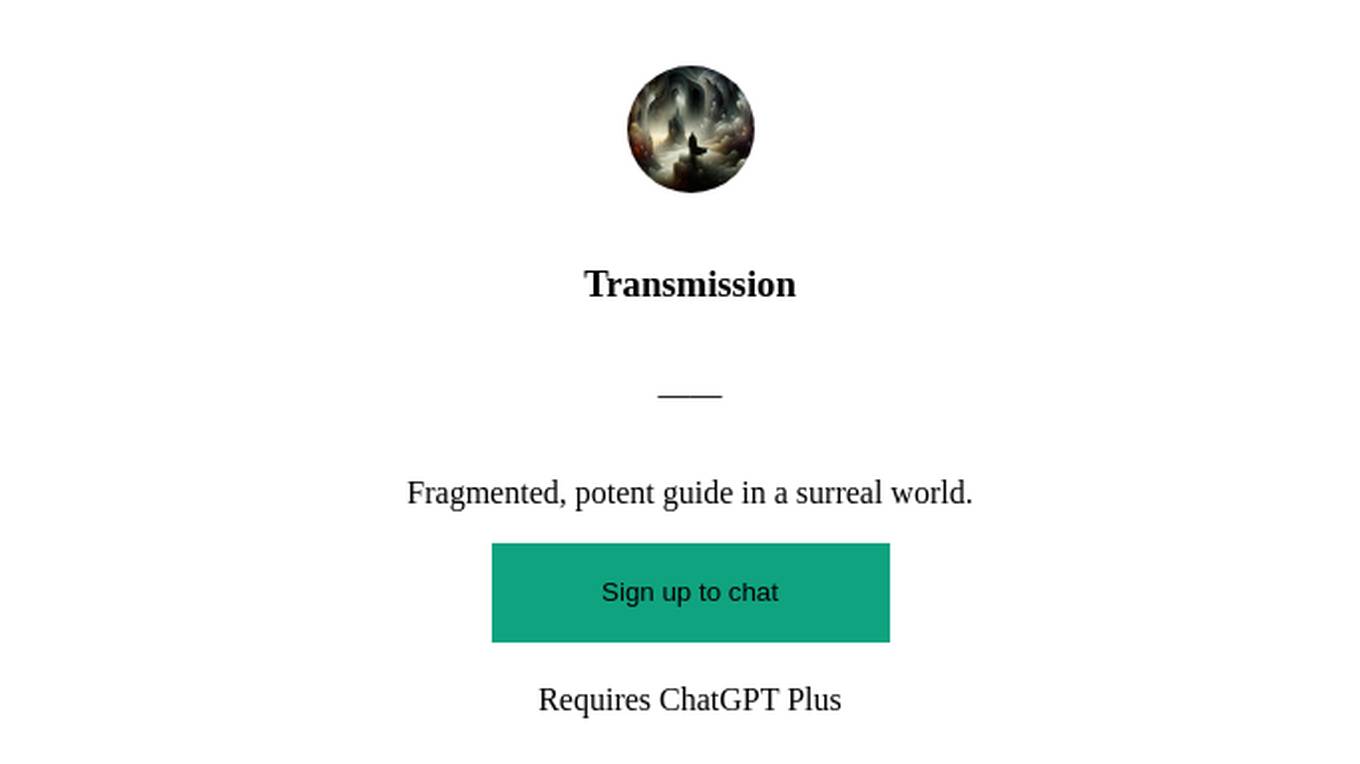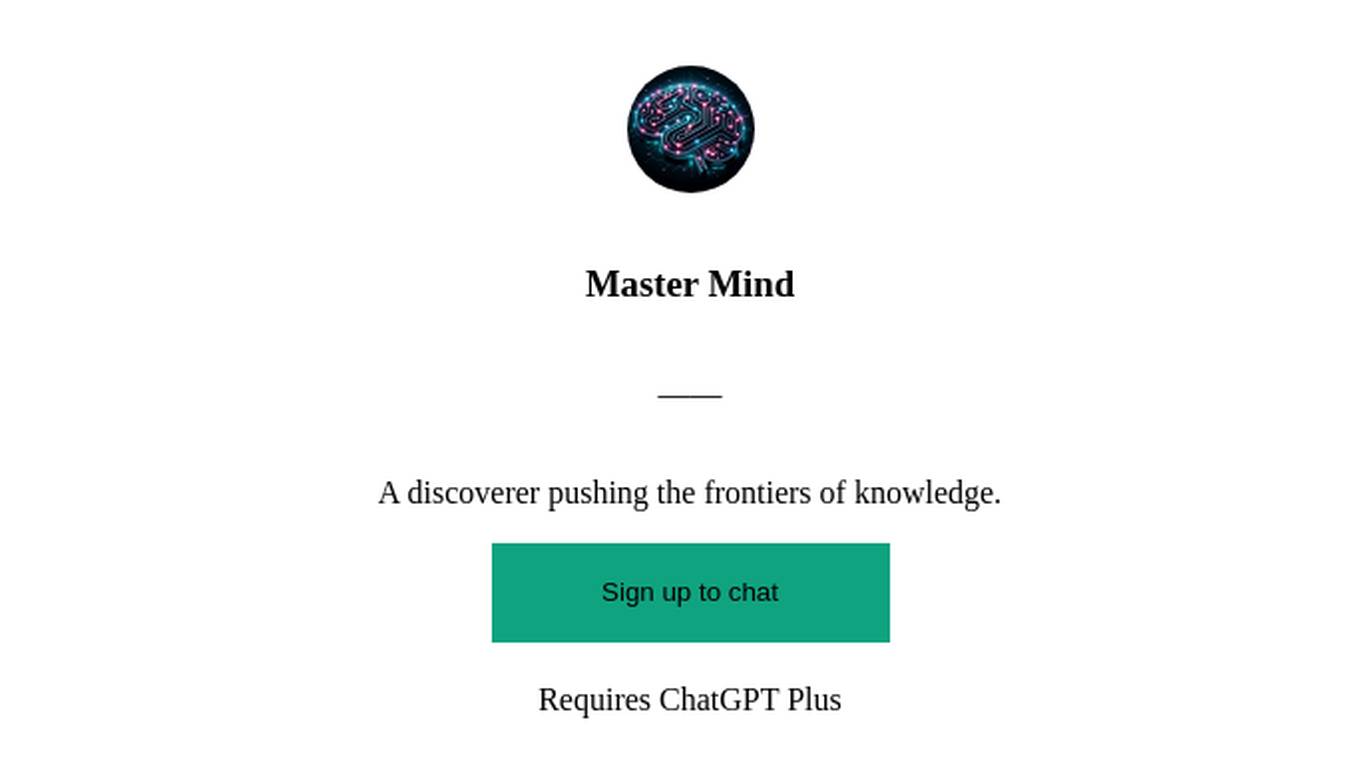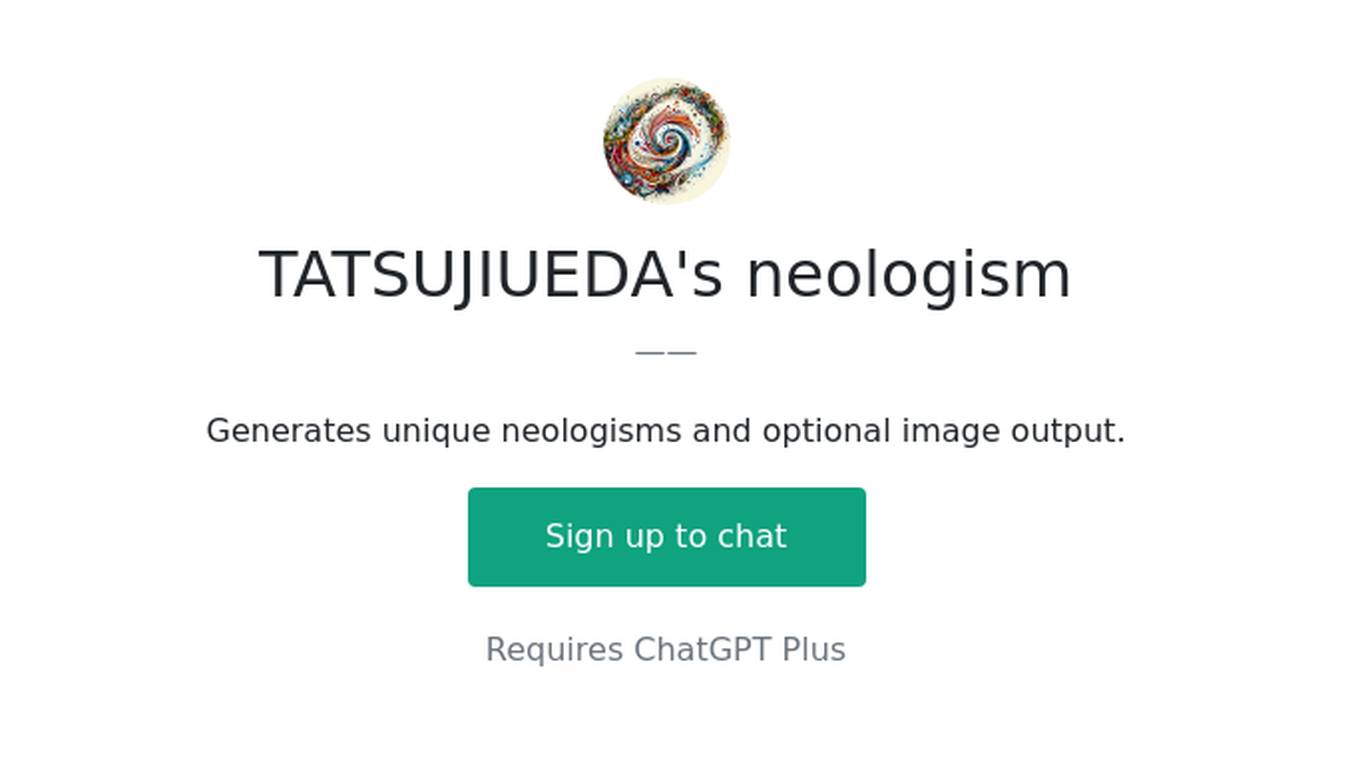Best AI tools for< Explore New Methods >
20 - AI tool Sites
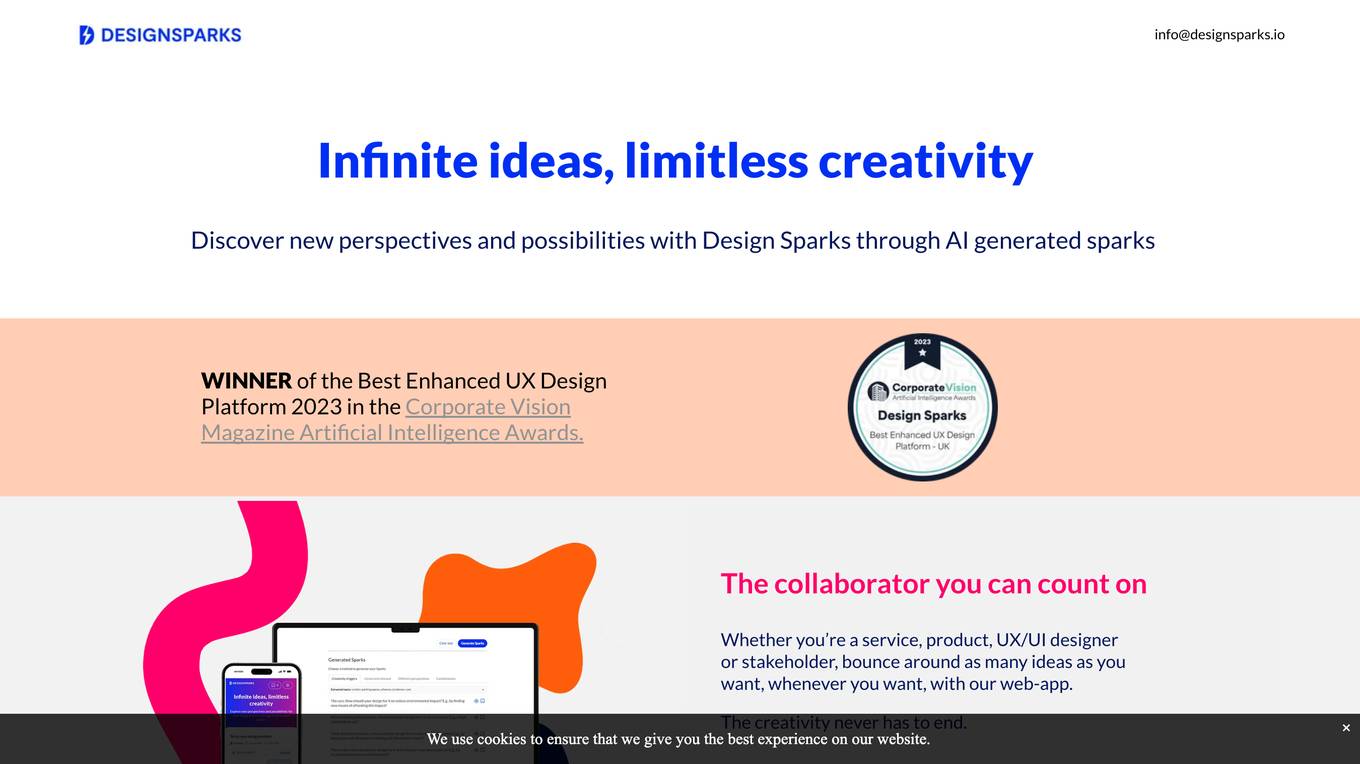
Design Sparks
Design Sparks is an AI-powered creativity tool that helps users generate new ideas and solve design problems. The tool uses a variety of AI techniques, including machine learning and natural language processing, to understand user input and generate relevant ideas. Design Sparks is designed to be used by a wide range of users, from designers and engineers to marketers and business professionals. The tool is easy to use and can be accessed through a web-based interface.
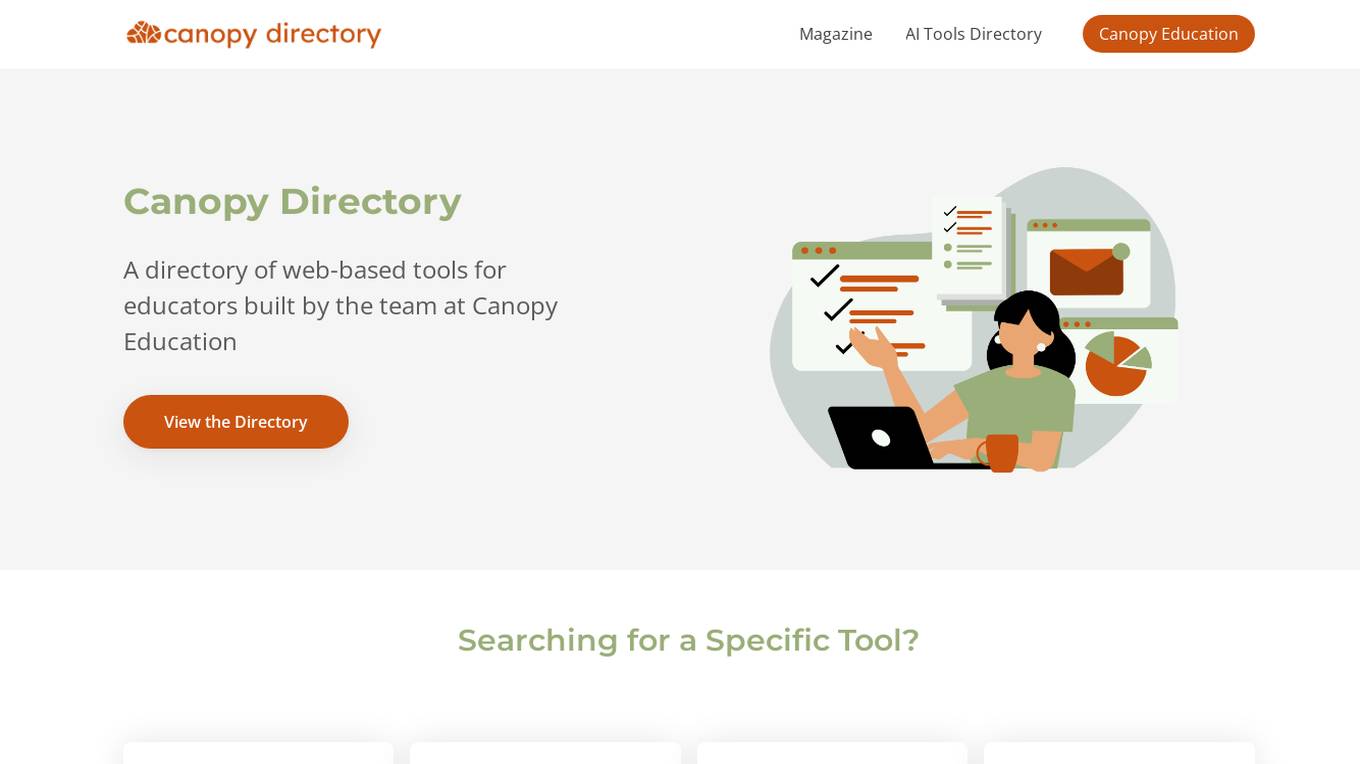
Canopy Directory
Canopy Directory is an AI tool designed specifically for educators. It provides a comprehensive directory of AI tools that can be used in educational settings. The platform aims to streamline the process of finding and utilizing AI tools for teaching and learning purposes. Educators can explore a wide range of tools categorized based on their functionalities and applications, making it easier to integrate AI technology into their teaching practices. Canopy Directory serves as a valuable resource for educators looking to enhance their teaching methods through the use of AI tools.
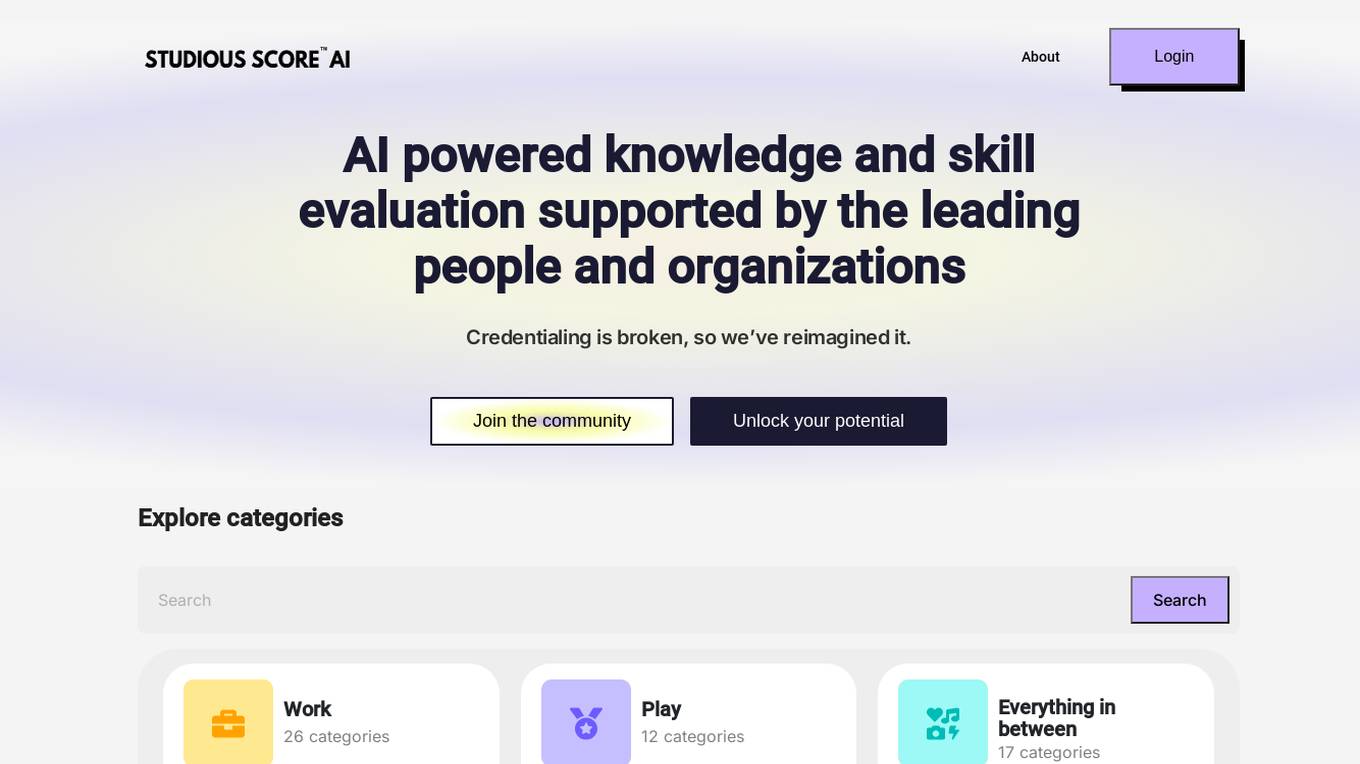
Studious Score AI
Studious Score AI is an AI-powered platform that offers knowledge and skill evaluation services supported by reputable individuals and organizations. The platform aims to revolutionize credentialing by providing a new approach. Studious Score AI is on a mission to establish itself as the global benchmark for assessing skills and knowledge in various aspects of life. Users can explore different categories and unlock their potential through the platform's innovative evaluation methods.
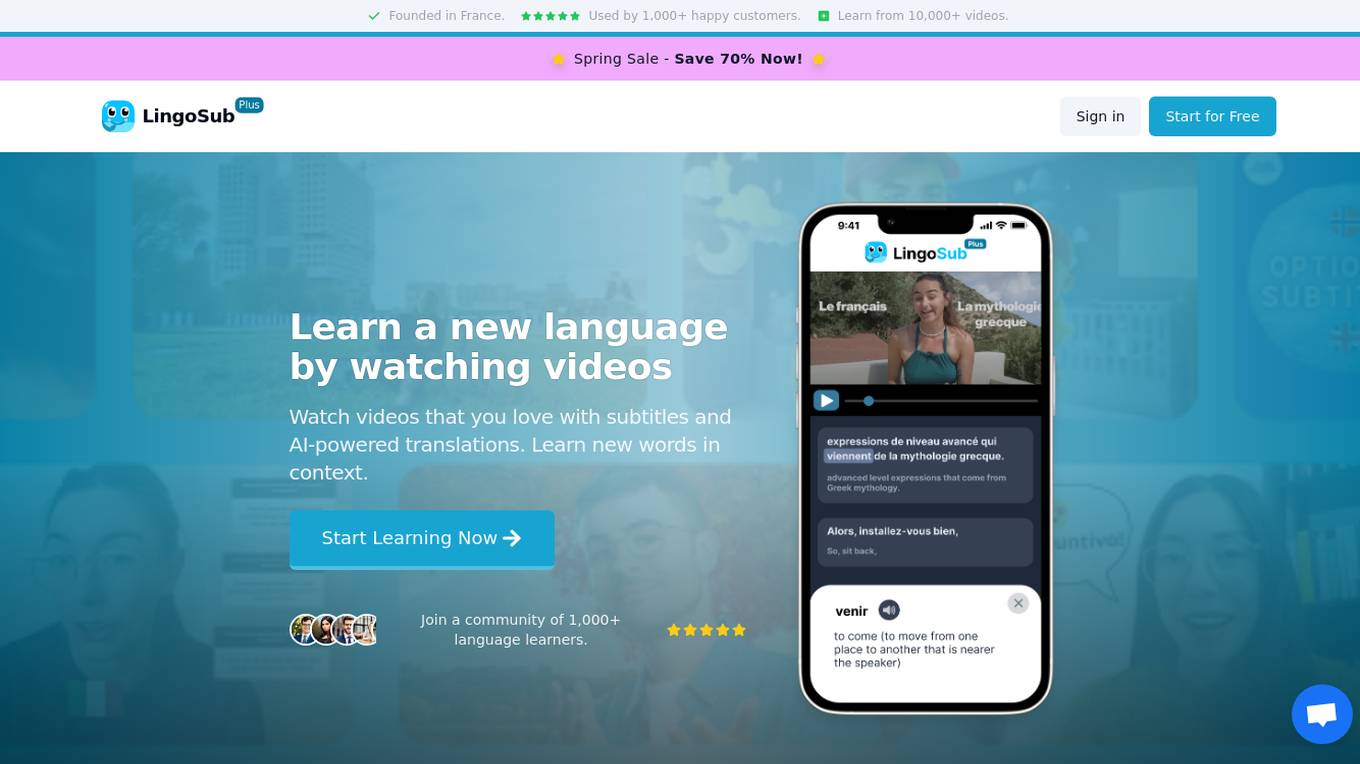
LingoSub
LingoSub is a language learning platform that allows users to learn new languages by watching videos with subtitles and AI-powered translations. With a vast library of videos in multiple languages, learners can immerse themselves in content that interests them while expanding their vocabulary and language skills. The platform offers a community of language learners, various pricing plans, and a responsive interface for seamless learning across devices.

JH360 AI
JH360 AI is an AI-driven consulting service that helps companies tap into their true essence and explore new growth opportunities. They offer services such as market research, strategy development, and measurement and analysis. JH360 AI excels in process improvement by leveraging cutting-edge AI technology and expert methodologies. They provide tailor-made generative AI strategies, rapid prototyping, and smart AI integration to drive innovation and success across various industries.

The New Black
The New Black is an AI-powered clothing fashion design generator that allows users to create unique and stylish clothing designs with ease. With its intuitive interface and powerful AI algorithms, The New Black empowers users to explore their creativity and bring their fashion visions to life. Whether you're a professional designer or simply have a passion for fashion, The New Black is the perfect tool to help you create stunning and eye-catching designs.
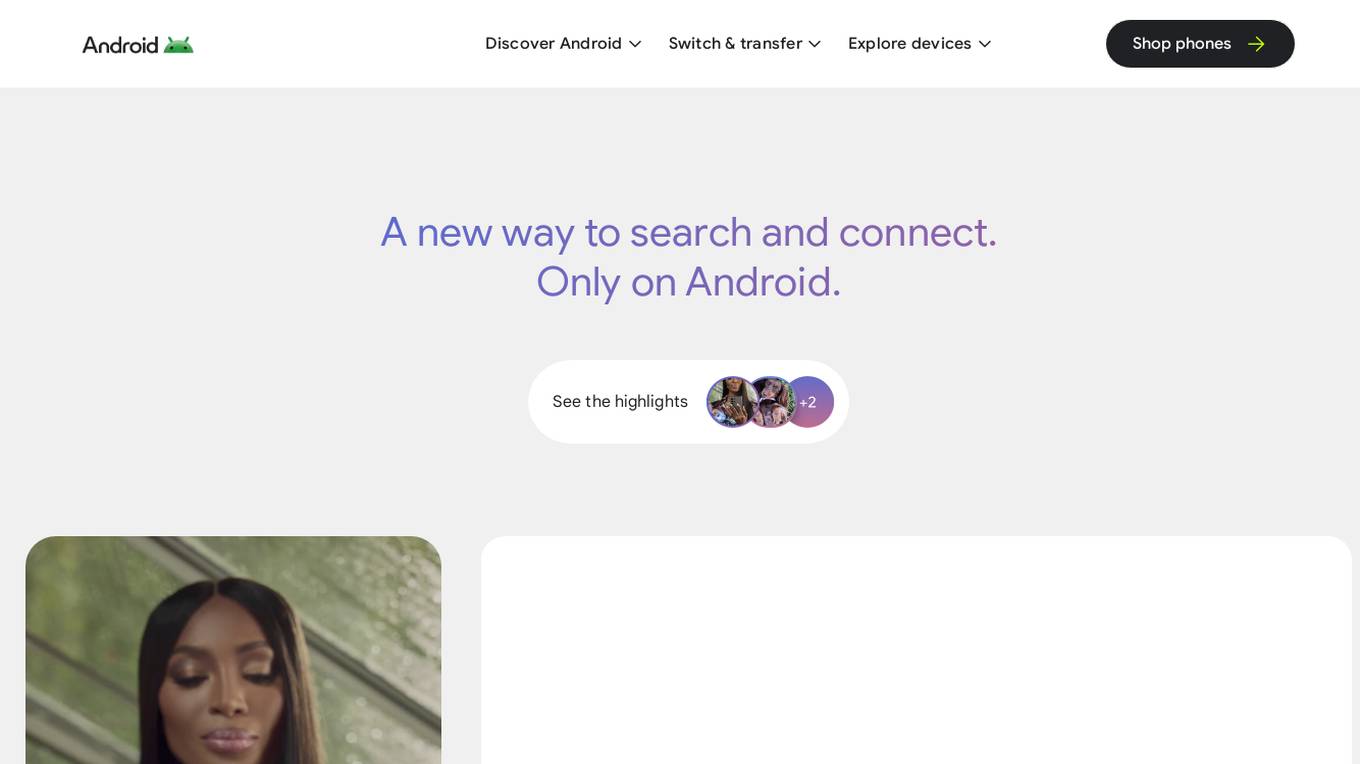
Android with Google AI
The website is a platform that showcases the latest features and innovations in the Android ecosystem, particularly focusing on Google AI integration. Users can explore new Android devices, learn about Android 14 protection, accessibility features, and enterprise solutions. The site also promotes Android Auto, Quick Share, and device switching capabilities. It emphasizes a seamless search experience with 'Circle to Search' and offers exclusive features like 'Photomoji' for creating custom emojis and 'Magic Compose' for composing memorable messages. Users can shop for phones, tablets, and accessories, sign up for beta testing, and access device-specific functionalities. The platform caters to tech enthusiasts, Android users, and those interested in cutting-edge mobile technologies.
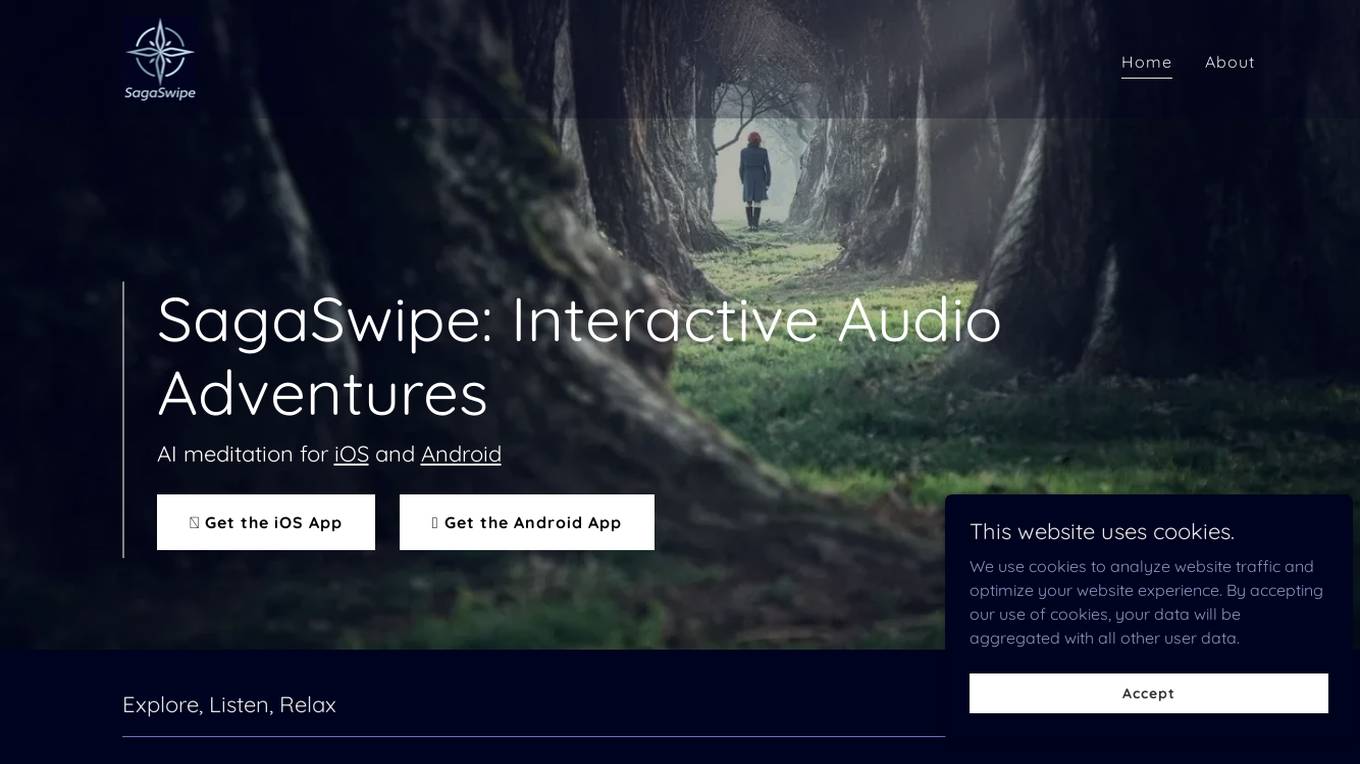
SagaSwipe
SagaSwipe is an interactive audio adventure application designed for iOS and Android users. It offers a unique experience where users can immerse themselves in infinite audio realms guided solely by touch. Unlike traditional sleep apps, SagaSwipe provides engaging escapes into magical realms, vibrant cities, serene landscapes, or mysterious outer space. The application combines AI and voice synthesis technology with an intuitive interface to generate personalized audio worlds for users to explore and relax.
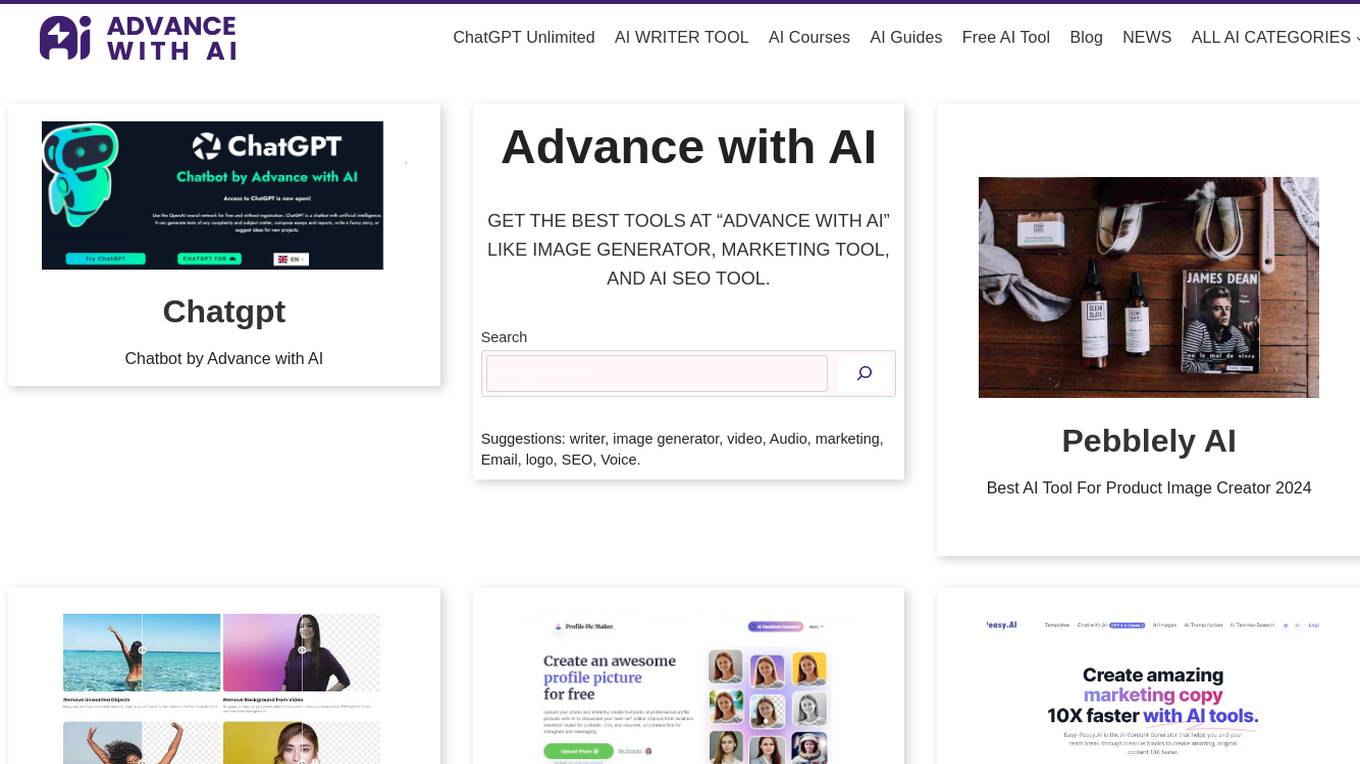
Advance with AI
The website 'Advance with AI' offers a range of AI tools and applications for various purposes such as content creation, image editing, and productivity enhancement. Users can access AI-powered tools like AI Writer, AI Image Generators, and AI Productivity Tools to streamline their tasks and improve efficiency. The platform also provides information on different AI categories and frequently asked questions related to AI tools and their applications.
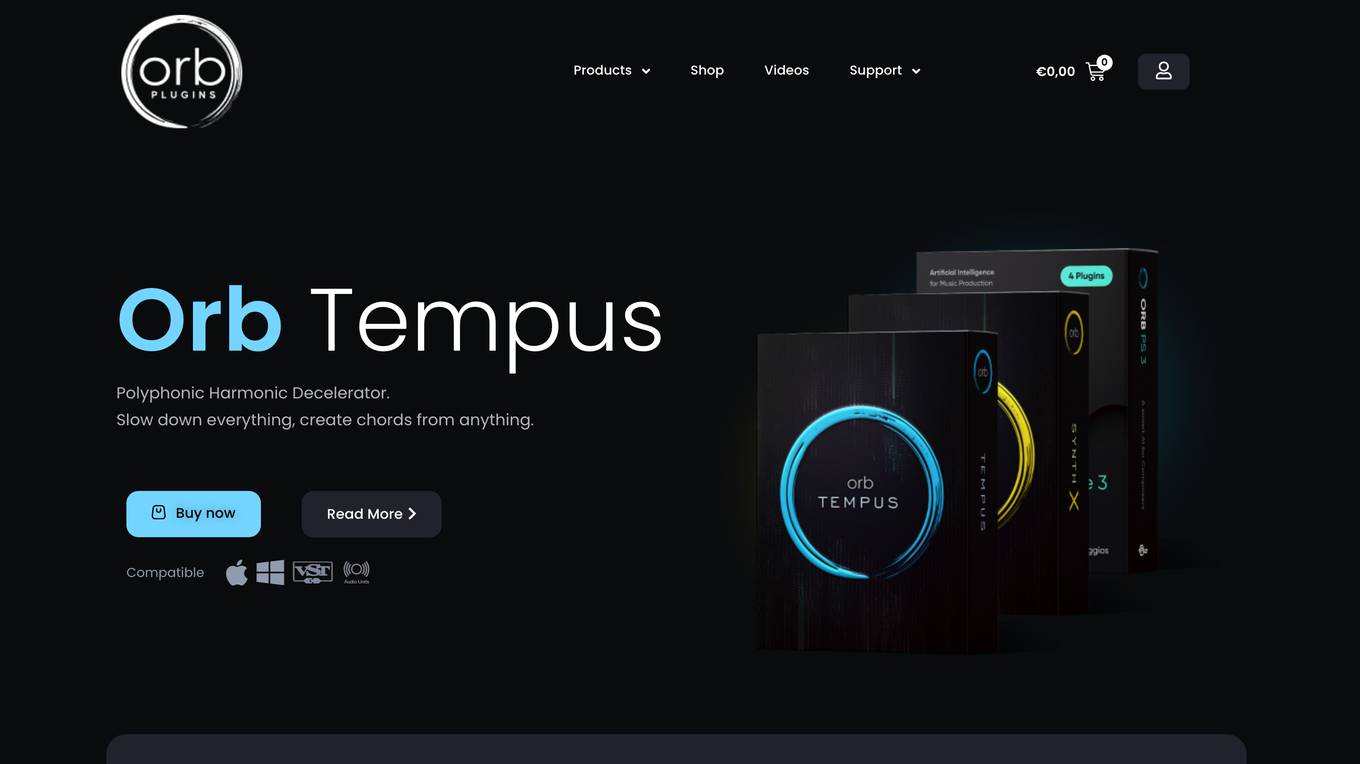
Orb Plugins
Orb Plugins offers a suite of AI-powered music production tools designed for composers, producers, and DJs. Their flagship product, Orb Producer 3, assists users in generating chords, melodies, and rhythms, while Orb Synth X provides a state-of-the-art wavetable synthesizer. Orb Orchestra is tailored for composers, enabling them to experiment with new musical ideas and compose efficiently. The plugins are known for their user-friendly interface, seamless DAW integration, and ability to break creative blocks. Many professionals in the music industry use Orb Plugins to enhance their workflow and explore new sonic possibilities.
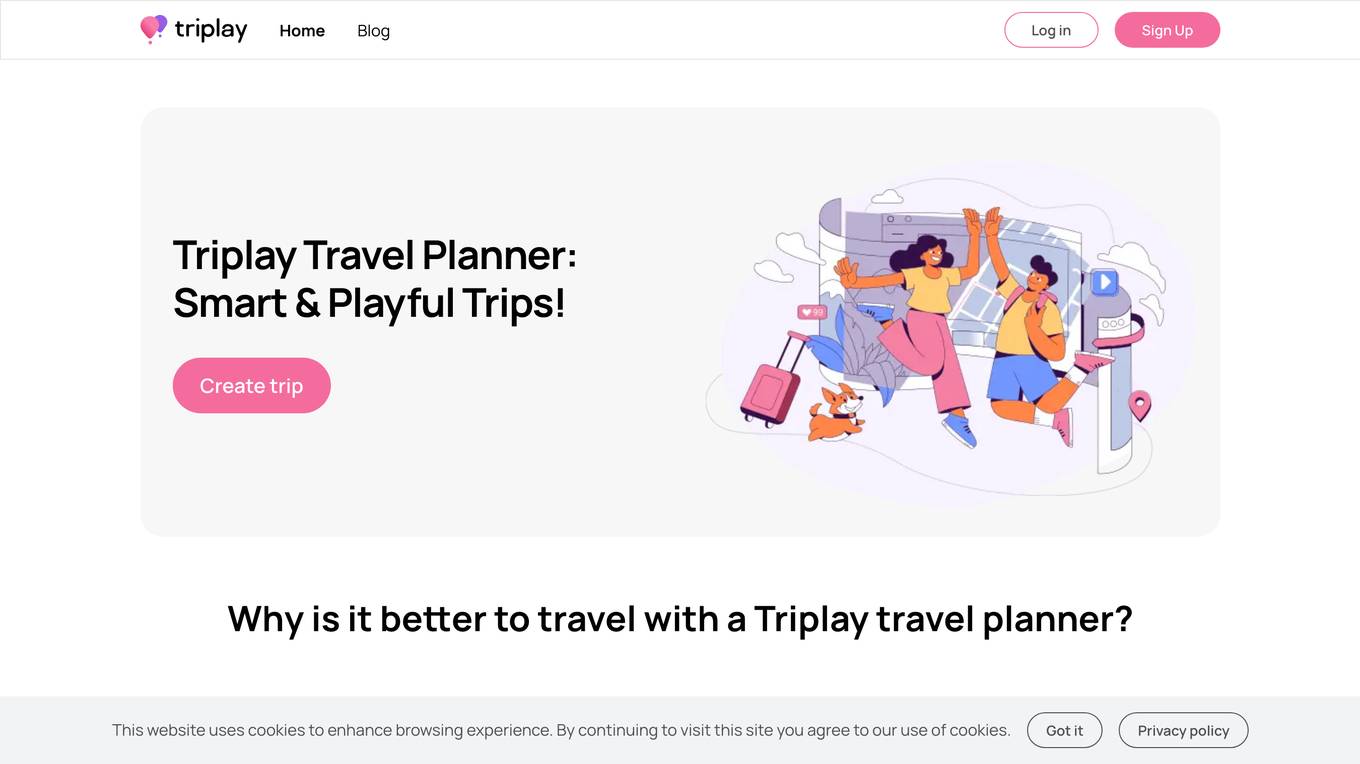
TripTip Travel Planner
TripTip Travel Planner is a smart and playful travel planning application that utilizes AI technology to create personalized itineraries for users. The tool allows users to design their ideal journey step-by-step by entering their destination, trip dates, type of trip, and interests. It offers a unique level of personalization, generating the best itineraries and recommendations tailored to individual preferences. With TripTip, users can explore worldwide destinations with personalized insights, enhance their adventure with AI-enhanced maps, and stay connected anywhere with offline access. The application aims to make every trip unique and unforgettable by providing detailed trip information and optimizing routes.

GENjourney
GENjourney is an AI-powered travel planning application that helps users create personalized trip itineraries. By leveraging artificial intelligence technology, GENjourney offers tailored travel recommendations based on user preferences and interests. Users can input their desired destinations, activities, and budget, and GENjourney will generate optimized travel plans with suggested attractions, accommodations, and transportation options. With GENjourney, users can save time and effort in planning their trips while discovering new and exciting travel experiences.
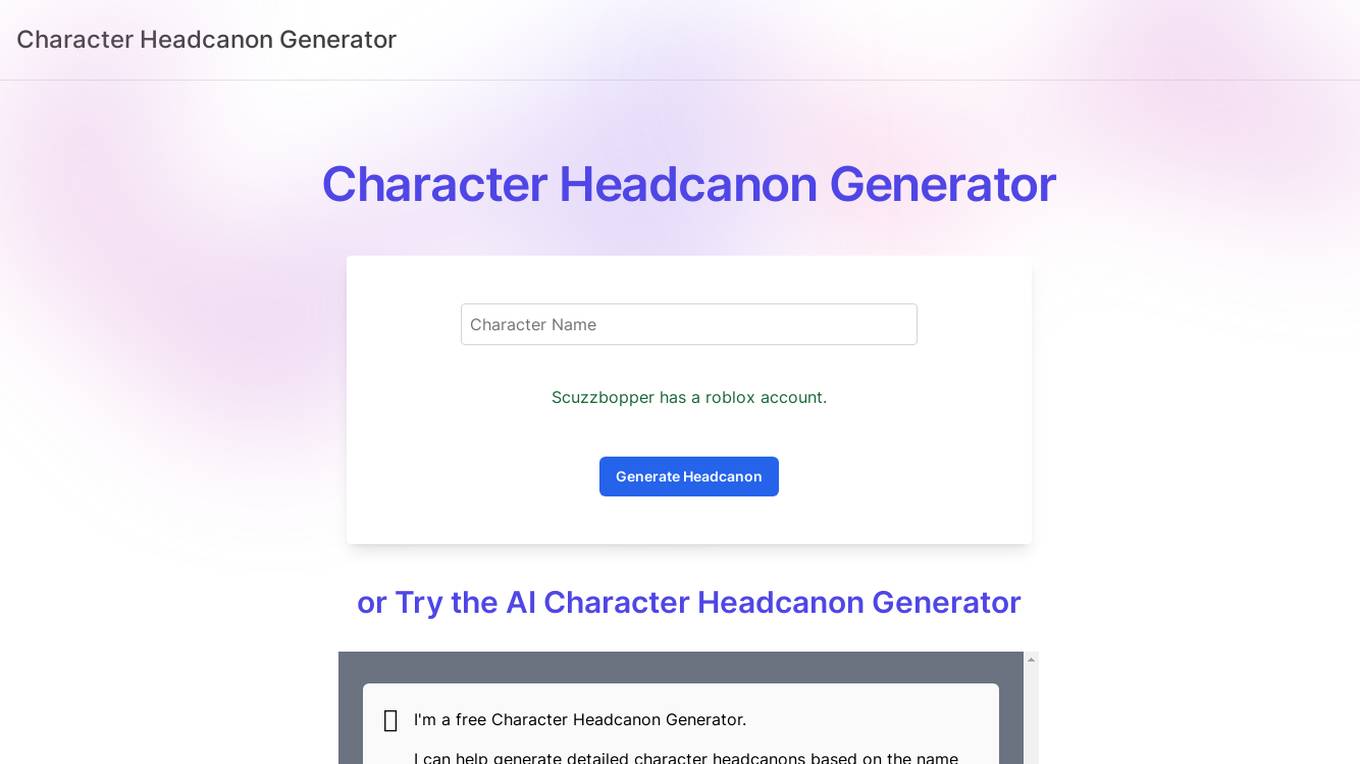
Character Headcanon Generator
Character Headcanon Generator is an AI tool that creates unique character backstories and traits for writers. It offers a seamless and user-friendly experience, allowing users to input character details and generate engaging new story elements. The tool utilizes algorithms to expand on the inputted details and provides a valuable resource for writers, role-players, and fan fiction enthusiasts to enhance their storytelling.
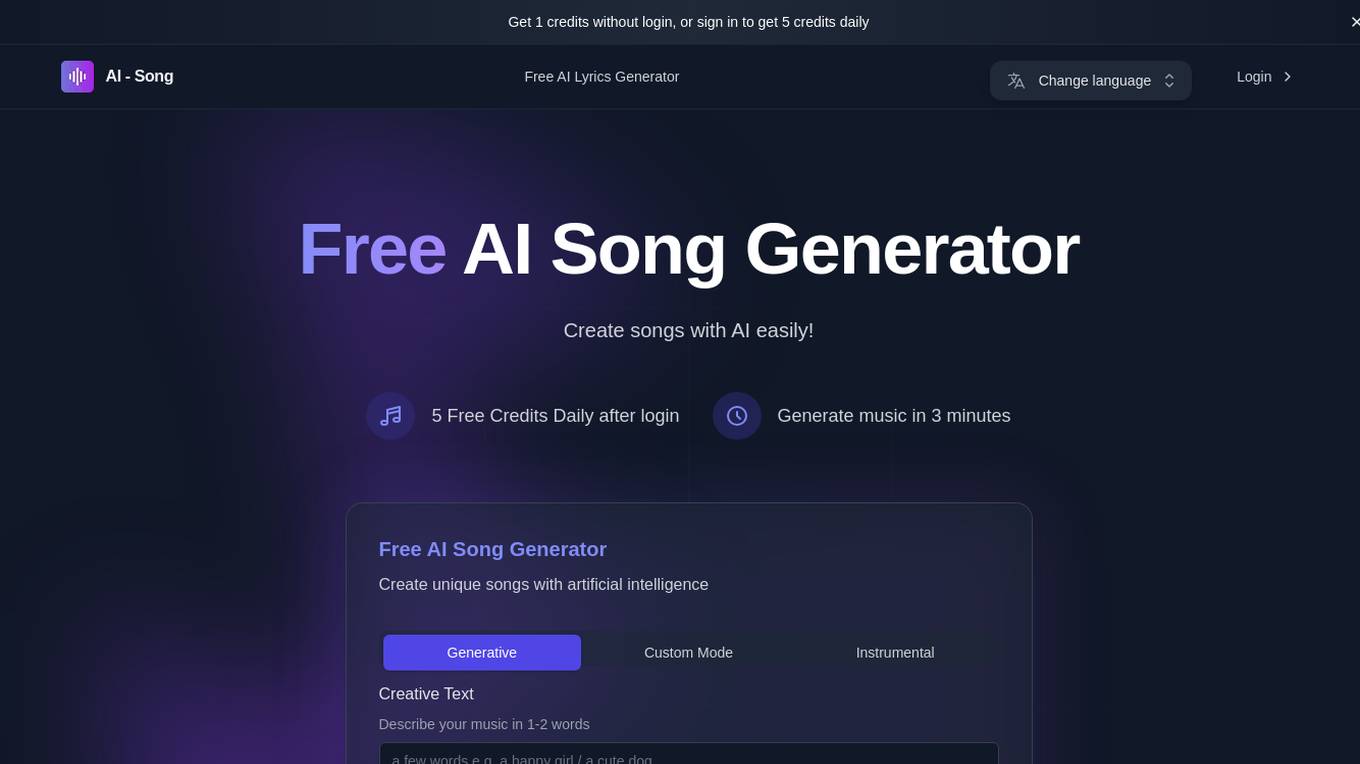
AI Song Generator
AI Song Generator is a free online tool that allows users to create unique songs with artificial intelligence. Users can generate original melodies, lyrics, and full songs with just a few clicks. The tool offers daily free credits, multiple generation modes, 3-minute song creation, copyright-safe output, high-quality results, and easy export options. It has been loved by thousands of users for its professional-grade music production capabilities and versatility in creating various music styles.
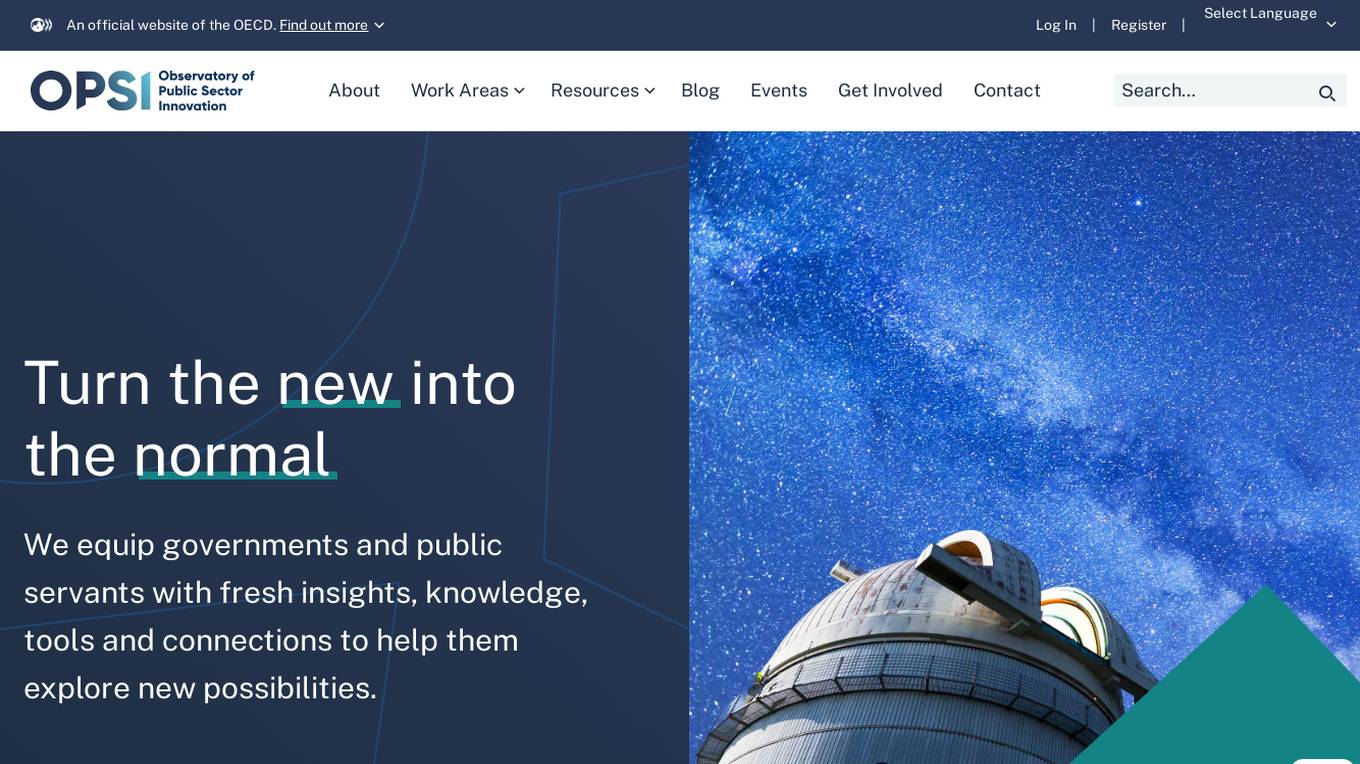
OECD Observatory of Public Sector Innovation
The OECD Observatory of Public Sector Innovation (OPSI) is a website that provides resources and tools to help governments and public servants explore new possibilities for innovation. OPSI's work areas include European Commission Collaboration, Anticipatory Innovation, Cross-Border Government Innovation, Behavioural Insights, Innovative Capacity, Innovation Trends, Innovation Portfolios, Mission-Oriented Innovation, Innovation Management, and Systems Approaches. OPSI also has a number of resources available, including a Toolkit Navigator, Case Study Library, Portfolio Exploration Tool, and Anticipatory Innovation Resource (AIR).

AIExplorerApp
AIExplorerApp is a platform offering innovative AI-powered applications to simplify and enhance various aspects of life. From personalized travel planning to creative tools like AI Face Swap Video Generator, the app provides cutting-edge technology for different needs. Users can explore new destinations, create viral videos, and leverage AI for everyday tasks, all through a seamless and inspiring experience.
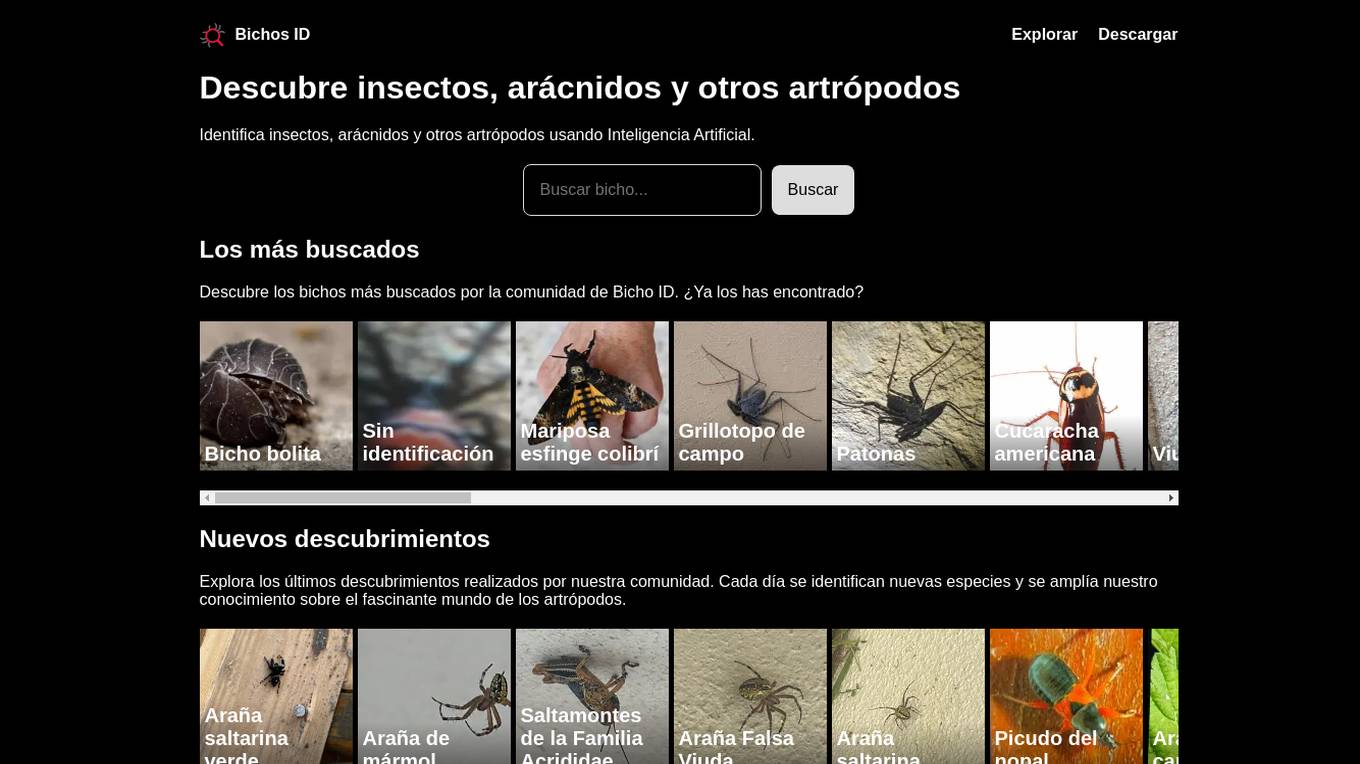
Bichos ID de Fucesa
Bichos ID de Fucesa is an AI tool that allows users to explore and identify insects, arachnids, and other arthropods using artificial intelligence. Users can discover the most searched bugs, explore new discoveries made by the community, and view curated organisms. The platform aims to expand knowledge about the fascinating world of arthropods through AI-powered identification.
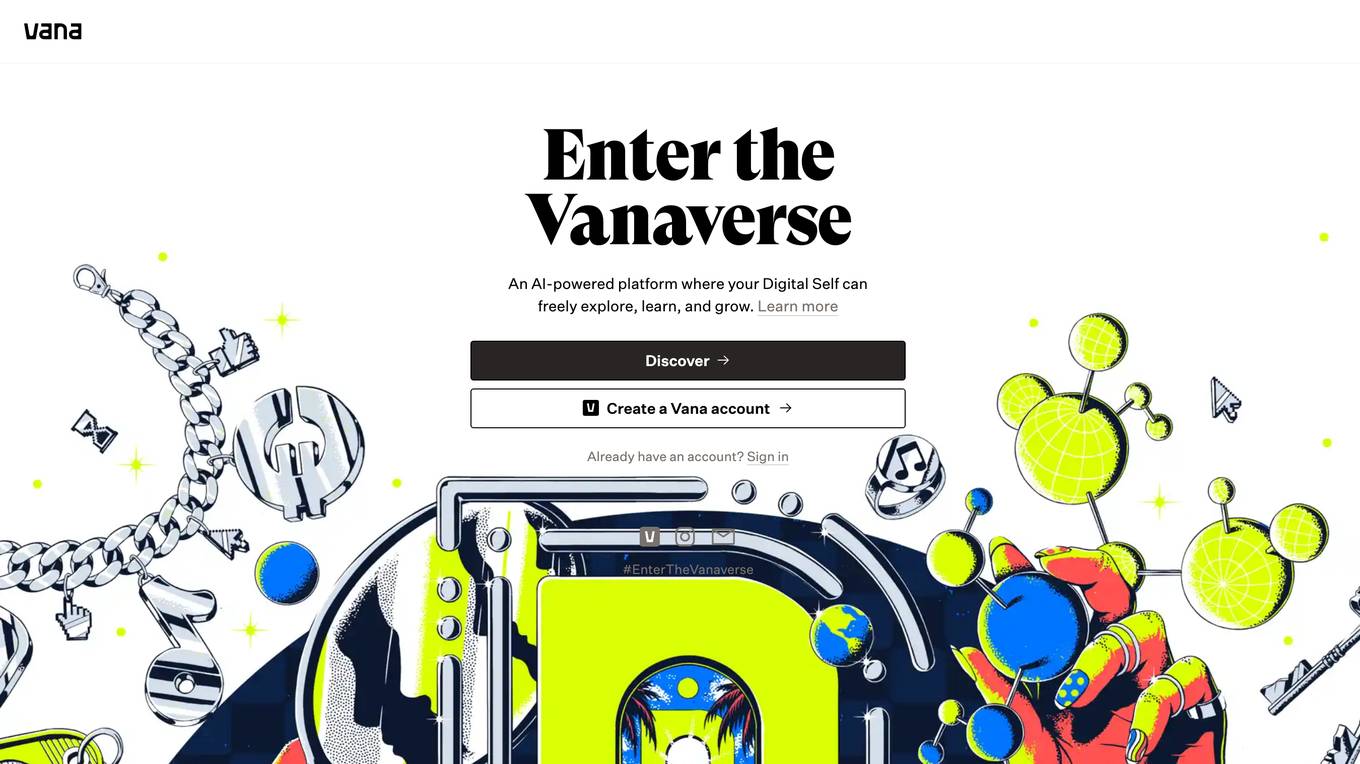
Vana
Vana is an AI-powered platform that allows users to create a digital version of themselves and explore, learn, and grow in a virtual world. Users can create their own avatars, interact with other users, and participate in a variety of activities, including games, educational experiences, and social events. Vana is designed to be a safe and supportive environment where users can learn and grow at their own pace.
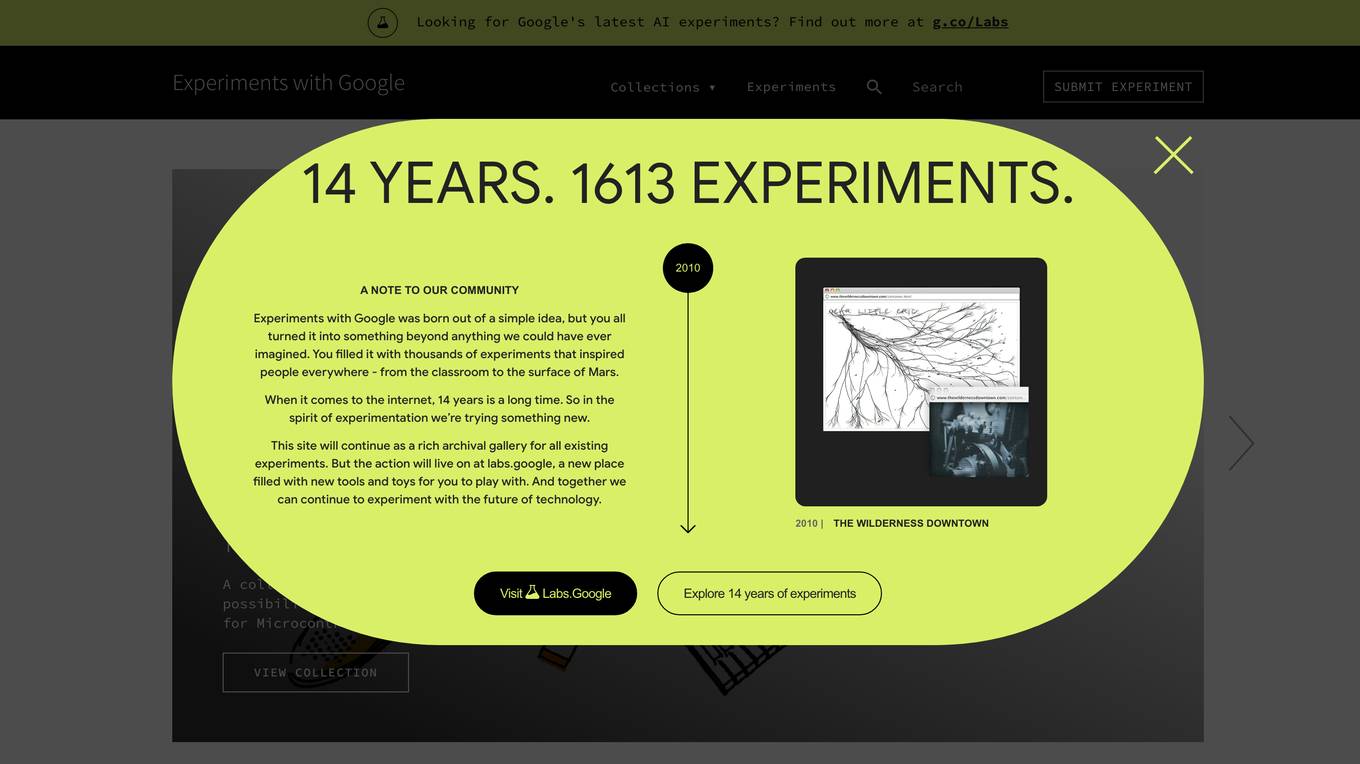
Experiments with Google
Experiments with Google is a website that showcases a collection of experiments created by coders using Chrome, Android, AI, AR, and more. The experiments are designed to inspire others to create new experiments and explore the possibilities of these technologies. The website also provides helpful tools and resources for creating experiments.

HumanX 2025
HumanX 2025 is the #1 AI Conference of 2025 that focuses on actionable insights and real-world applications of AI solutions. The premier industry event features a comprehensive agenda with nine diverse tracks, over 300 expert speakers, and numerous opportunities for meaningful connections. From innovators introducing breakthrough technologies to ethicists and policymakers framing the conversation around responsible AI use, HumanX aims to shape a future where technology amplifies human capability and innovation.
0 - Open Source AI Tools
20 - OpenAI Gpts
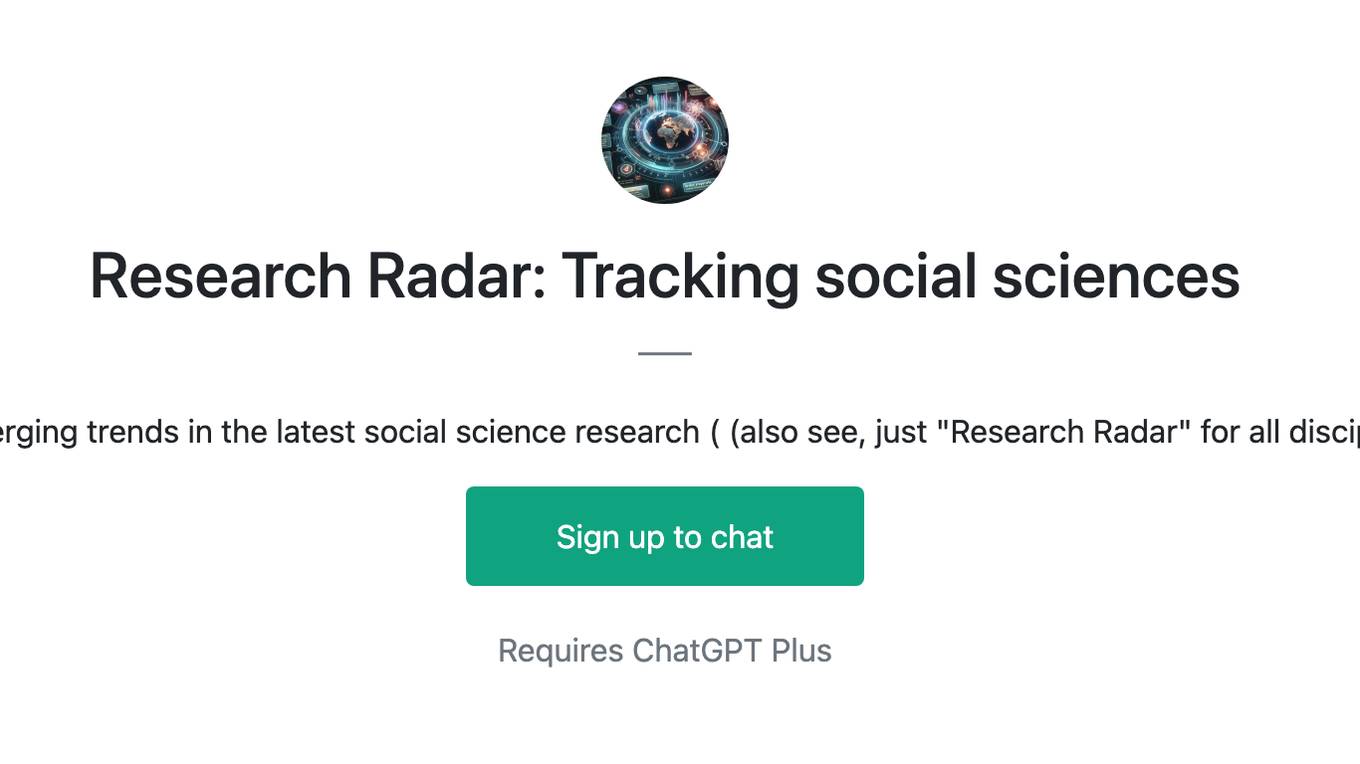
Research Radar: Tracking social sciences
Spot emerging trends in the latest social science research ( (also see, just "Research Radar" for all disciplines))
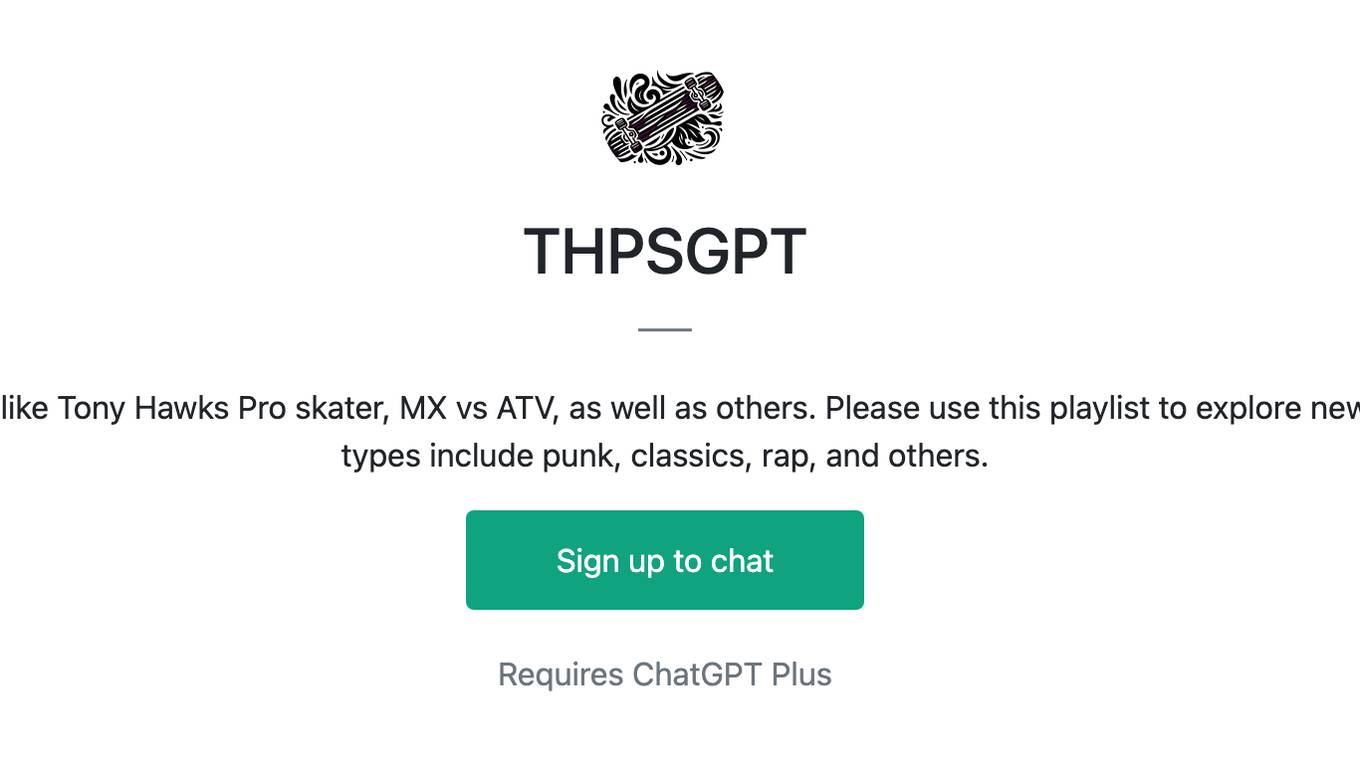
THPSGPT
Curates music from extreme sports games like Tony Hawks Pro skater, MX vs ATV, as well as others. Please use this playlist to explore new kinds of music with an open mind. Song types include punk, classics, rap, and others.
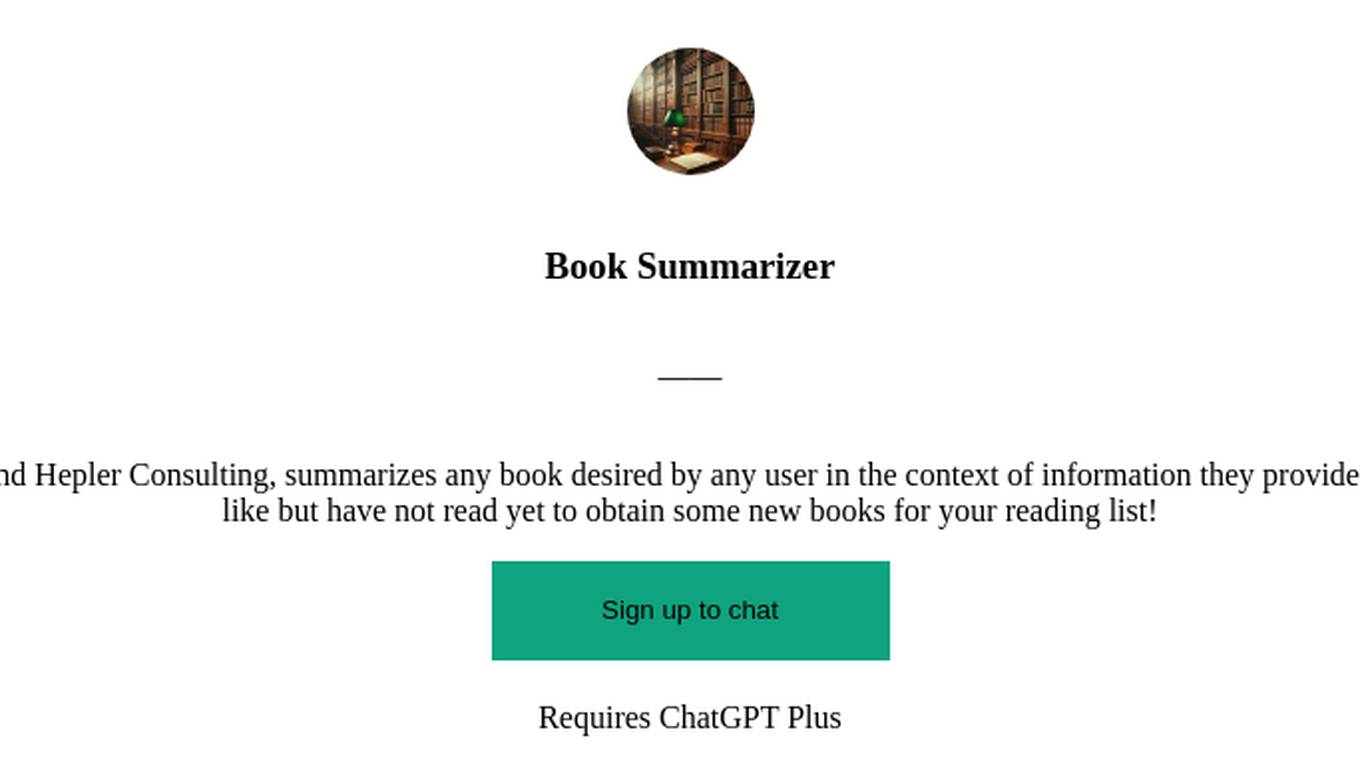
Book Summarizer
The Book Summarizer, provided by Library 2.0 and Hepler Consulting, summarizes any book desired by any user in the context of information they provide. You can also ask for summaries of books you may like but have not read yet to obtain some new books for your reading list!
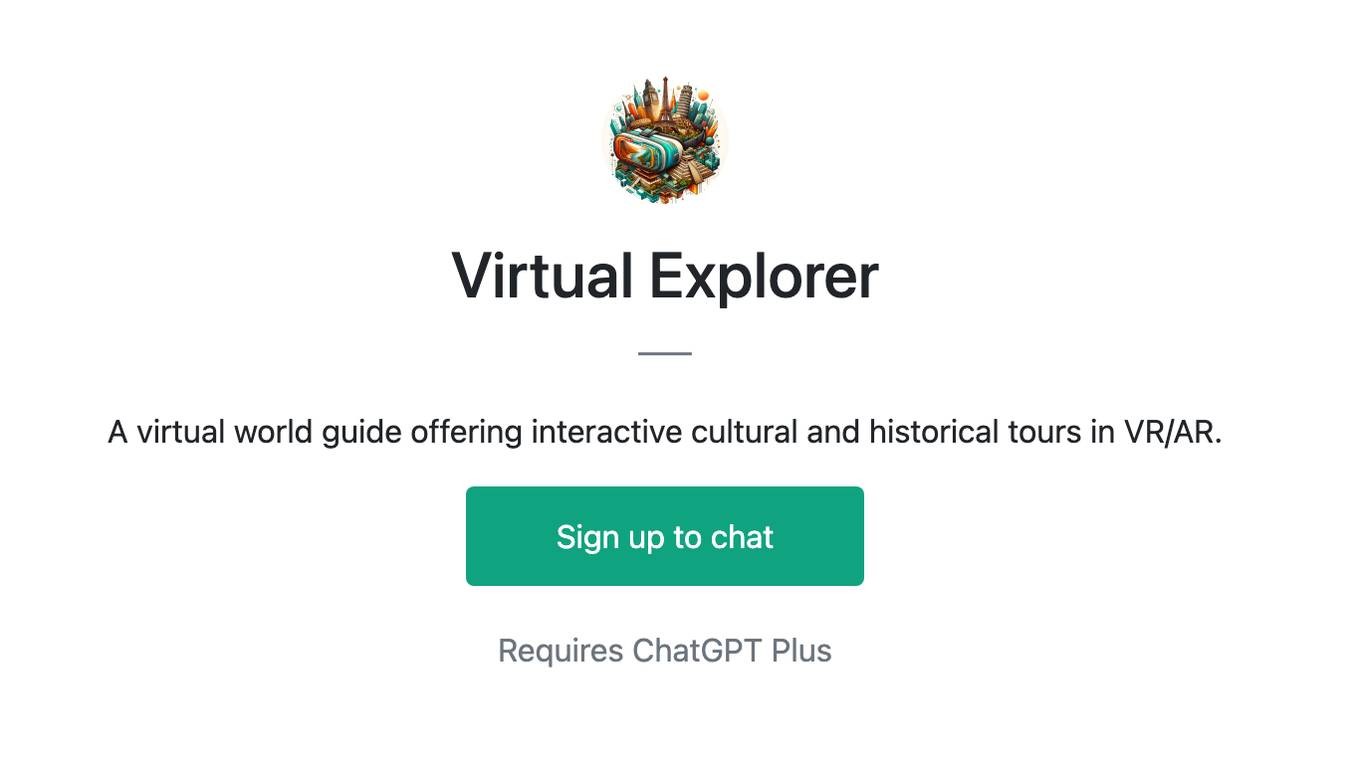
Virtual Explorer
A virtual world guide offering interactive cultural and historical tours in VR/AR.
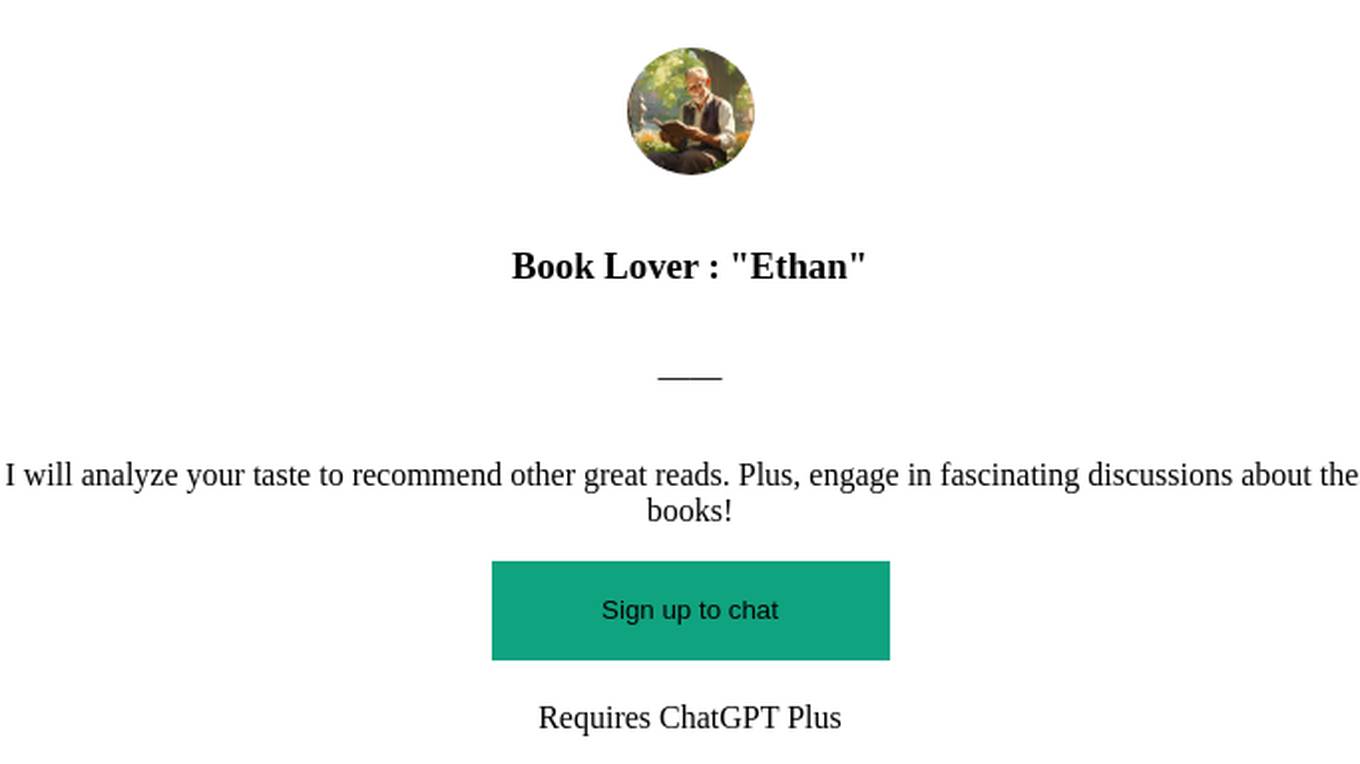
Book Lover : "Ethan"
Please upload an image of a book you love, and I will analyze your taste to recommend other great reads. Plus, engage in fascinating discussions about these books. It's time for exploring and talking about books!

Why do I live here?
I'm here to remind you of all the great things that exist where you live.
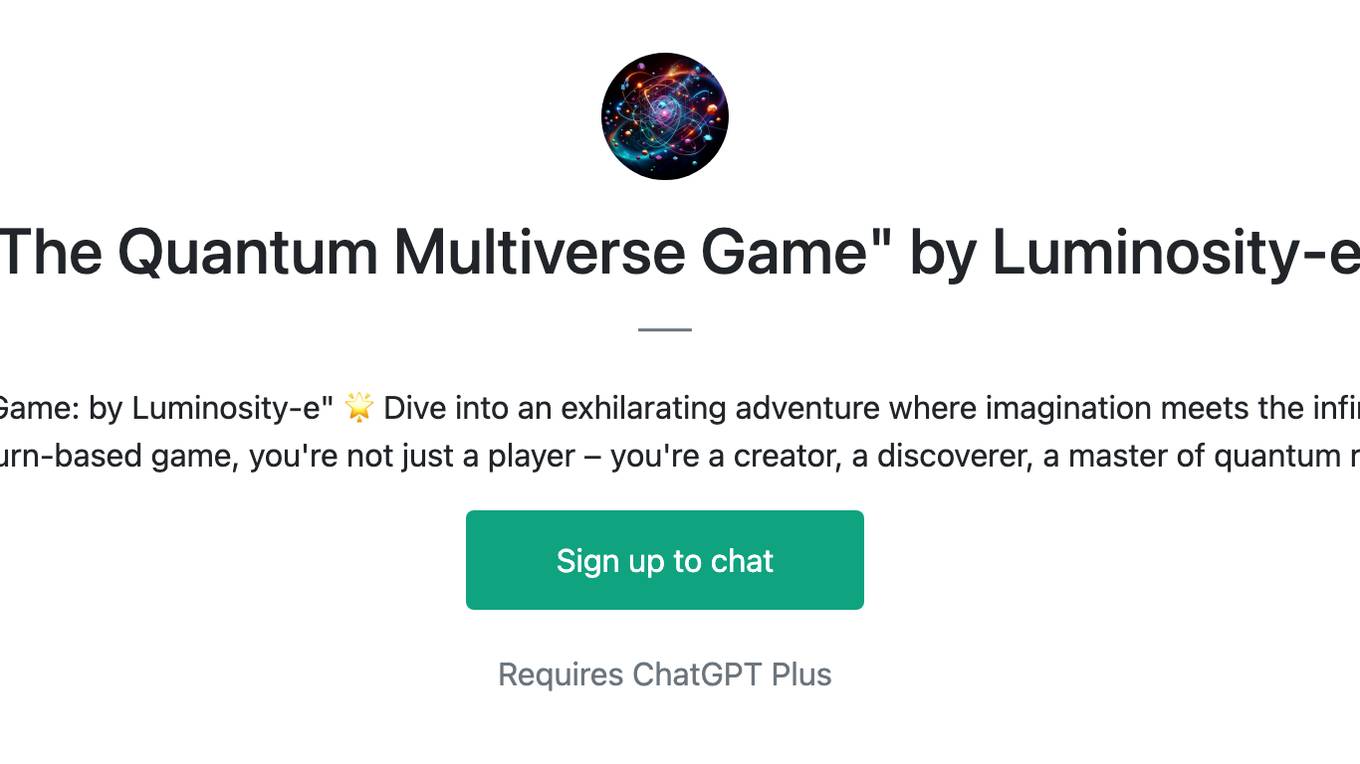
"The Quantum Multiverse Game" by Luminosity-e
🌌 Welcome to "The Quantum Multiverse Game: by Luminosity-e" 🌟 Dive into an exhilarating adventure where imagination meets the infinite possibilities of the multiverse. In this unique turn-based game, you're not just a player – you're a creator, a discoverer, a master of quantum realms.

